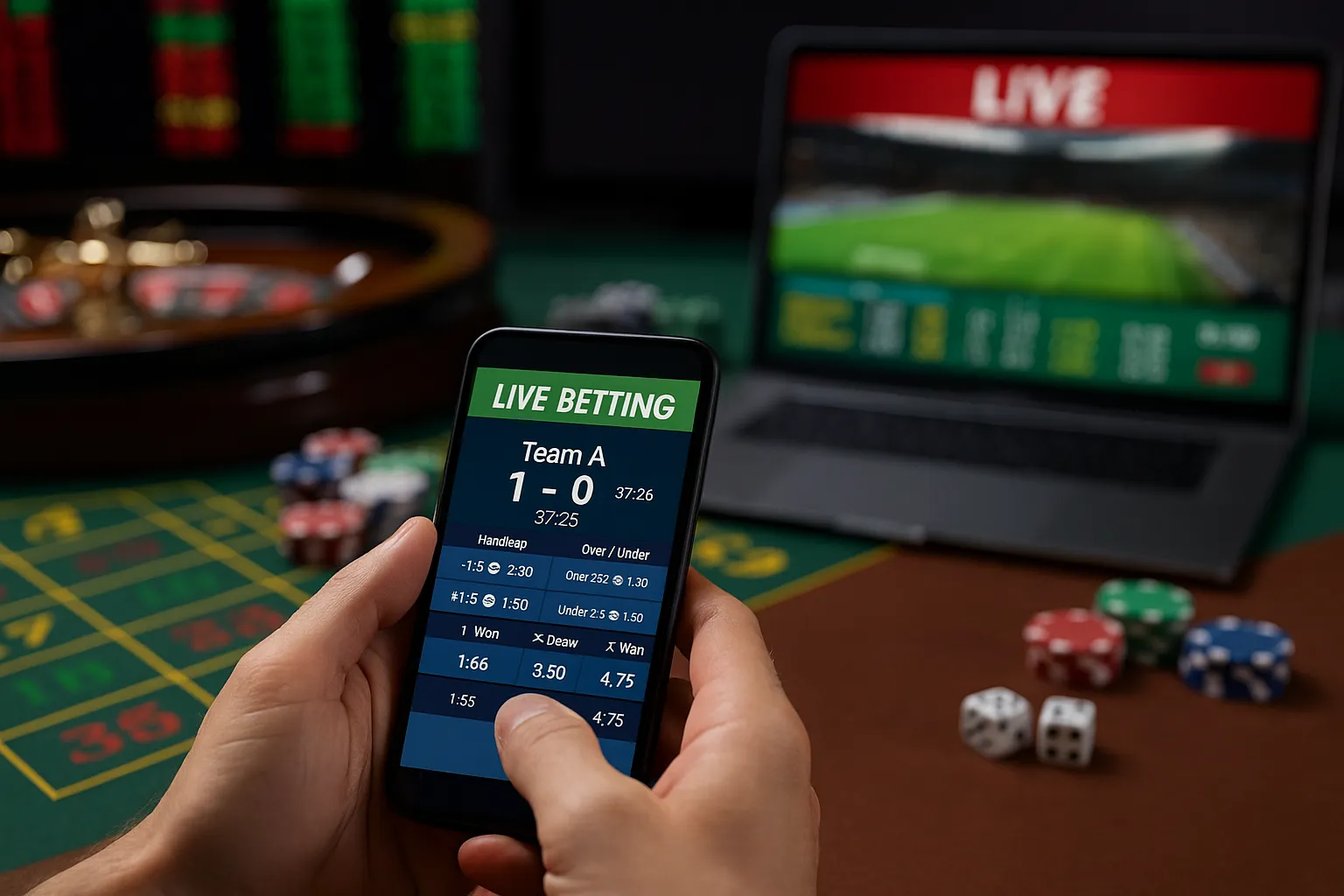If you’ve ever placed a live bet during a football match, tennis game, or even a basketball showdown, you’ll know the odds never stand still. One moment your team might be the underdog at 3/1, and seconds later, after a goal or a penalty, the odds could shrink dramatically. For many bettors, this constant fluctuation is part of the thrill. But why exactly do odds shift so quickly in live betting markets?
The answer lies in a blend of technology, probability, and psychology. Bookmakers use advanced systems to react instantly to changing circumstances on the field, while also accounting for betting patterns. Let’s break down the main reasons behind these shifts and what they mean for you as a bettor.
The Real-Time Nature of Live Betting
Live betting is built around immediacy. Unlike traditional pre-match wagers, where odds are set and adjusted slowly before the game, live markets must account for events unfolding in real time. A red card, an injury, or even a missed shot on goal can dramatically change the perceived probability of an outcome.
Bookmakers employ automated algorithms to monitor games and update odds within seconds. These algorithms analyze countless factors, from possession percentages to player substitutions, to predict outcomes. It’s this data-driven backbone that makes live odds so dynamic. Interestingly, innovations from other areas of the gaming industry, like new uk slot sites, use similar real-time updates and algorithms to keep players engaged — showing just how much technology is shaping both betting and casino experiences.
Key Events That Trigger Sudden Shifts
The most obvious reason odds change quickly is major game events. A goal in football, a break of serve in tennis, or a three-pointer in basketball instantly alters the balance of probabilities. Bookmakers don’t wait until the crowd stops cheering; their systems adjust odds within moments to reflect the new reality.
But it’s not only scoring events. Smaller details like fouls, corner kicks, or even momentum shifts can cause odds to move. In sports where psychology plays a big role, such as tennis, a single double fault at a critical time can swing the market dramatically.
The Role of Market Demand
Odds aren’t just about what’s happening on the field — they’re also influenced by what bettors are doing. If a surge of wagers comes in on one outcome, bookmakers may adjust the odds to balance their liability. This ensures the house protects itself against heavy losses.
For example, if thousands of people suddenly back one team to score next, the odds on that event will shorten. Bookmakers are constantly juggling probability with betting behavior, and live markets magnify this because everything happens at lightning speed.
Algorithms and Artificial Intelligence
Modern sportsbooks rely heavily on algorithms and artificial intelligence to set and adjust odds. These systems analyze live data feeds, historical performance, and even player fitness levels to calculate probabilities. The more sophisticated the system, the quicker and more accurately it can adjust to what’s happening in the game.
AI also helps reduce human error. Before these systems existed, oddsmakers had to manually adjust lines, which left room for delays. Today, automated systems can update markets in seconds, ensuring bettors never have a window to exploit outdated odds.
Psychological Momentum and Perception
Odds also reflect psychology — both of players and bettors. Momentum in sport is real. A team that was struggling may suddenly gain confidence after scoring, and the betting markets recognize this. Similarly, if the public perceives one side as having an edge, odds may shift faster than the statistics alone would suggest.
This is why experienced bettors often talk about “value.” Sometimes, odds move too far in one direction due to public sentiment, creating opportunities for sharp players to find better-priced bets.
Why Odds Can Change Even Without Action
One confusing aspect of live betting is when odds change even though nothing dramatic has happened in the game. This is often due to the passage of time. For instance, if a football match remains 0-0 as the clock ticks down, the odds on “Under 2.5 Goals” will naturally shorten because the likelihood of three or more goals decreases with every passing minute.
Time decay is a built-in element of live betting. Bookmakers know that the closer you get to full time, the fewer opportunities remain for certain outcomes to occur, so they adjust accordingly.
What Bettors Can Learn From Rapid Odds Shifts
For bettors, the fast pace of live markets is both a challenge and an opportunity. It requires quick thinking and the ability to spot value before the odds move. At the same time, it highlights the importance of discipline. Chasing constantly shifting odds can lead to poor decision-making if you’re not careful.
The best approach is to stay informed, understand how odds are calculated, and accept that markets will often move faster than you can react. Being selective and patient pays off more than trying to chase every fluctuation.
Final Thoughts
Odds shift quickly in live betting markets because of real-time events, market demand, advanced algorithms, and even the psychology of both players and bettors. The combination of these factors creates a dynamic environment where nothing is static for long. For many, this is what makes live betting so exciting — but it’s also what makes it risky.
By understanding why odds move the way they do, you can approach live betting with a clearer strategy and a better appreciation for the systems at work. Just like the thrill of fast-moving games at new uk slot sites, live betting thrives on constant change. The key is to know how to navigate it without getting swept away.










